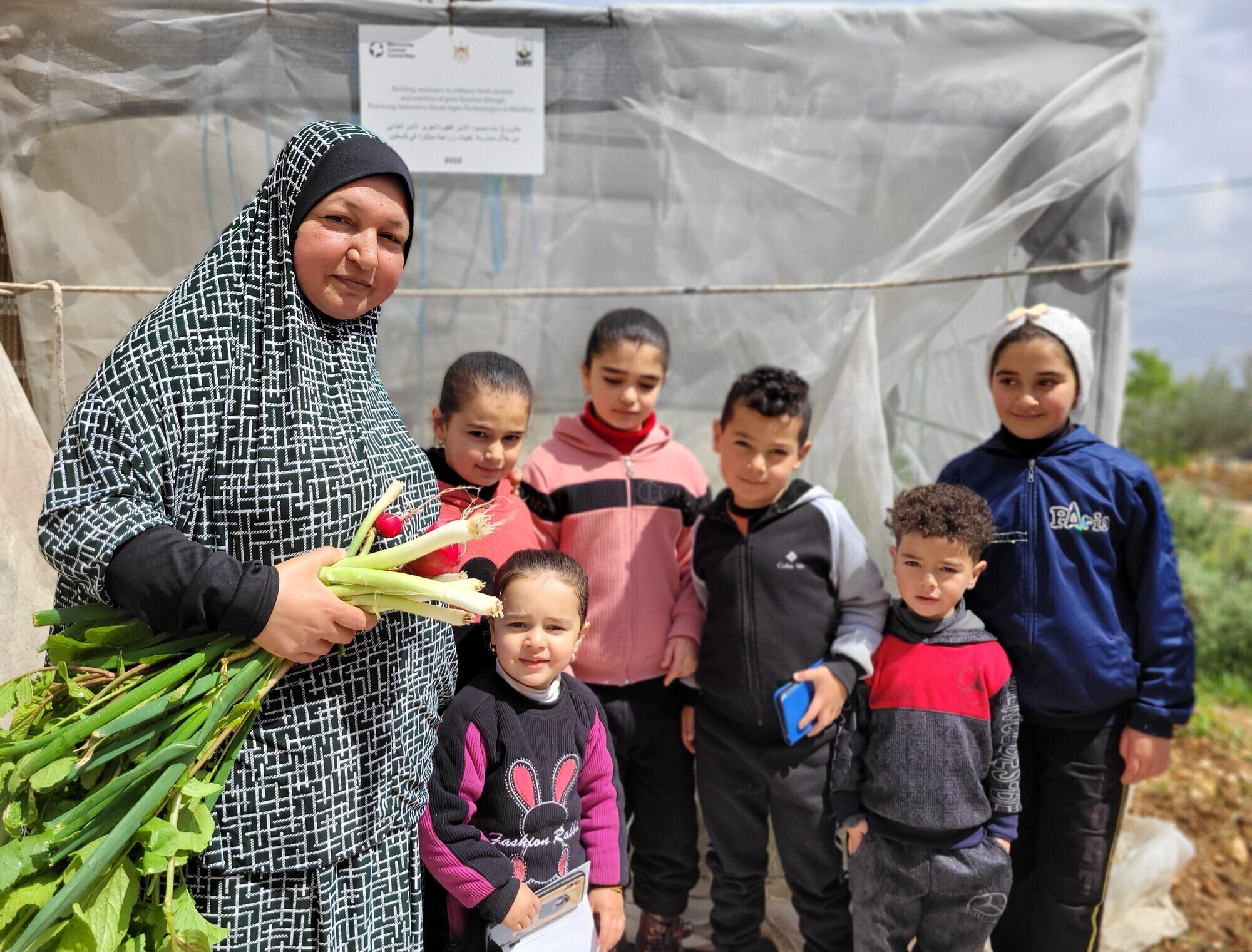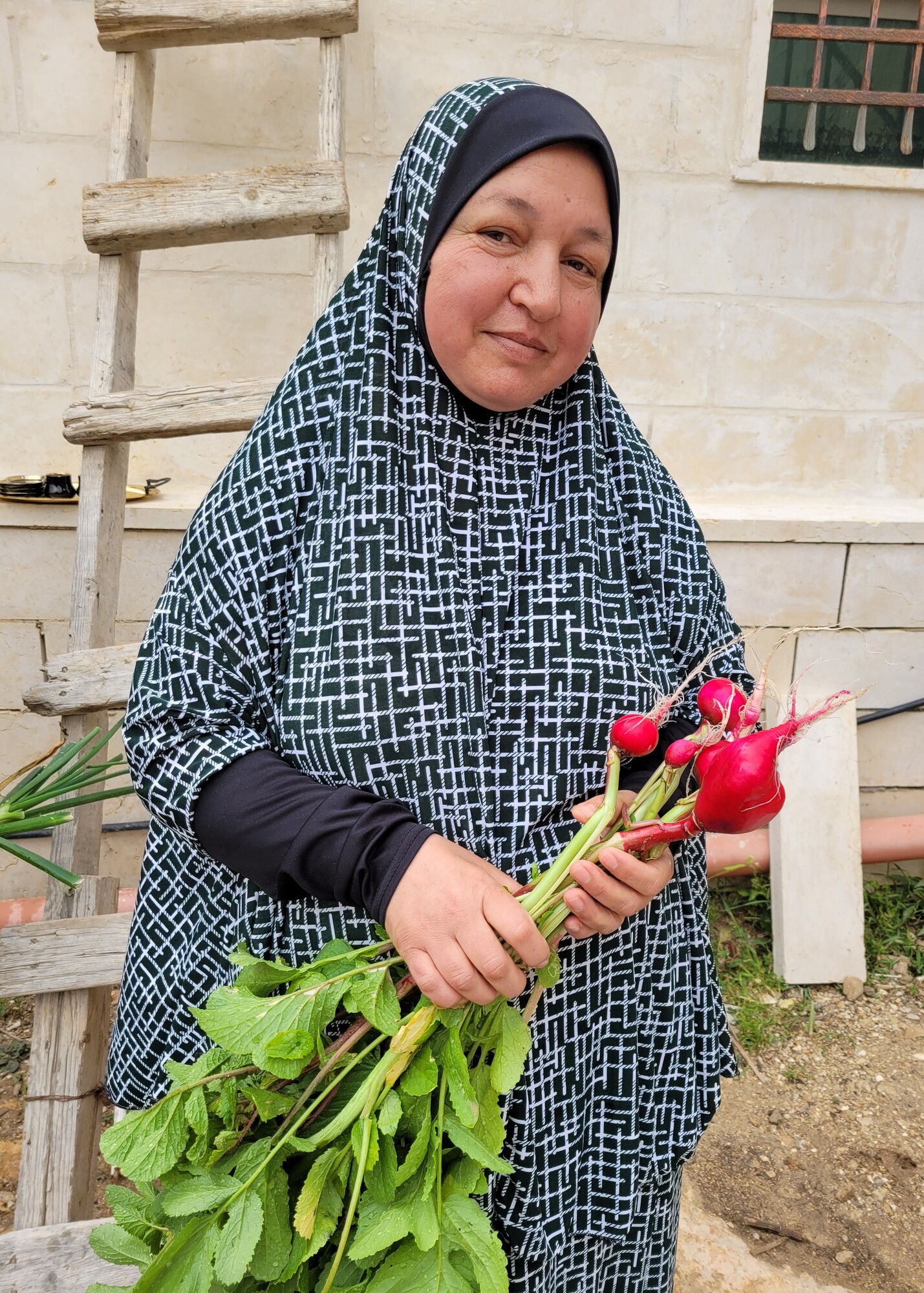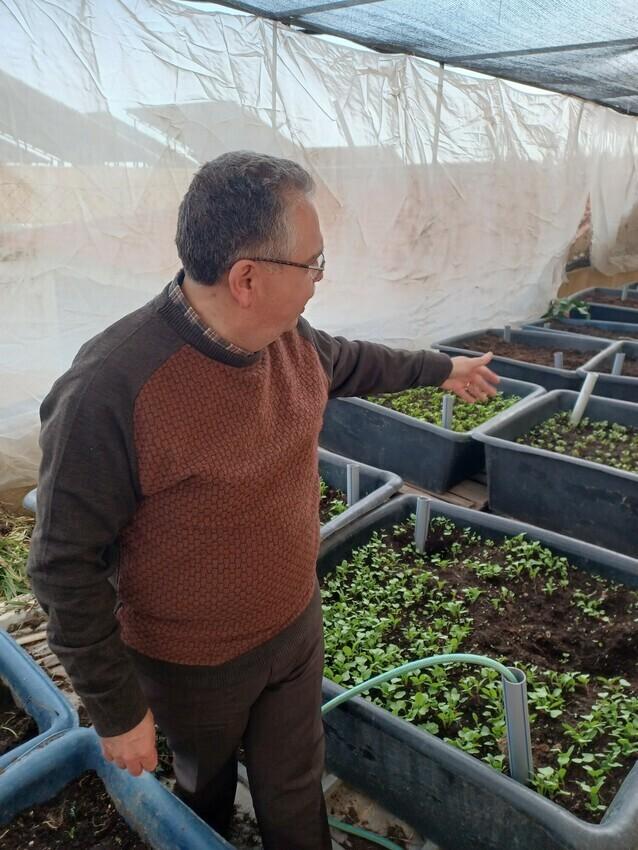Wicking gardens in Palestine
A little water and a little space provide fresh vegetables for struggling families

Huda Al Takatka spends up to four hours a day tending her wicking garden near the town of Beit Fajjar, West Bank, Palestine. “It doesn’t really need that much time,” she says, beaming her infectious smile. “I just like spending time there … with my loved ones.” Those include her husband, Muhammad, six children and 11 grandchildren.
For almost a year, she has been able to grow the fresh vegetables in her four garden boxes, placed beside a tiny citrus and fig orchard in her yard. With Muhammad out of work because a visual impairment, vegetables used to be something she couldn’t always afford.
“Now we can grow what we like,” she says, “and they are much better than what we find at the market.” She grows radishes, onions, cabbages, eggplant, spinach and tomatoes.

Huda is one of 20 gardeners in the Bethlehem governorate who have benefited from the wicking garden project of the Applied Research Institute – Jerusalem (ARIJ), a longstanding MCC partner that promotes responsible land development within the realities of Israel’s military occupation of the West Bank. The MCC-funded pilot program not only boosts food security for low-income families, but also models a sustainable alternative for food production.
As ARIJ agricultural coordinator Munif Doudin explains, plants in a wicking garden box draw moisture from a layer of water-soaked volcanic pebbles, which are covered with a thick layer of compost and peat. Water is poured into pipes leading to the stones below instead of sprinkled from the top, thus reducing evaporation. This type of irrigation uses 60% less water than surface irrigation.

Each beneficiary, selected by ARIJ in consultation with local community leaders, receives an orientation to the method and is supplied with four square-meter plastic bins along with PVC piping and the other supplies. They also get a frame that surrounds the boxes with netting to protect against insects and to filter out the harsh sunrays in summer.
Beit Fajjar is an ideal setting for the project, given its challenges. The climate is dry and hot. Any water that can be collected is kept in cisterns. According to ARIJ, access to public water sources is limited because the Israeli government has reduced access in Beit Fajjar, as it has other areas in the West Bank. Water is prioritized for Israeli settlements being built in the West Bank instead of for existing Palestinian communities.
Beit Fajjar’s limestone cutting plant, the backbone of the local economy, has been depressed in recent years – in part because of Israel’s restrictions on West Bank industry. The limestone plant’s slowdown caused Fatima Al Takatka to apply for the wicking garden boxes.
Fatima (who is distantly related to Huda) is a widow who shares a house with her mother-in-law; teenage daughter, Afaf; and her adult son and primary breadwinner, Ahmed. When Ahmed was laid off from his job as a stonecutter, she struggled to prepare good meals for the household.
“When there was no money, we didn’t have vegetables,” recalls Fatima.
She was overjoyed when she learned she qualified for the wicking gardens. Living in a densely populated part of town, she had no yard, but she could install her boxes on the flat roof of her home to grow cauliflower, onions, radishes and spinach. “Now when I need something to cook, I just go upstairs,” she says.
Fatima hopes she can acquire a few more boxes so that she can become even more self-sufficient. “I could use 10,” she says.
Actually, says Munif, that should be possible. “Anyone can do wicking gardening using an old pot or discarded tub.” With the exception of the volcanic pebbles, compost and other materials can be found or adapted locally.
ARIJ hopes that the wicking method will catch on locally as people like Huda and Fatima build their gardens and share their ideas with others. For Huda, the food is valuable, but so is the satisfaction she derives from the work of gardening.
With a bit of hyperbole, she waves a handful of large radishes and declares, “These, you know, are worth more than $1,000 dollars.”
Top image: Huda Al Takatka, left, stands with her grandchildren in front of her screened wicking garden in Beit Fajjar, West Bank. MCC photo/Melita Rempel-Burkholder

